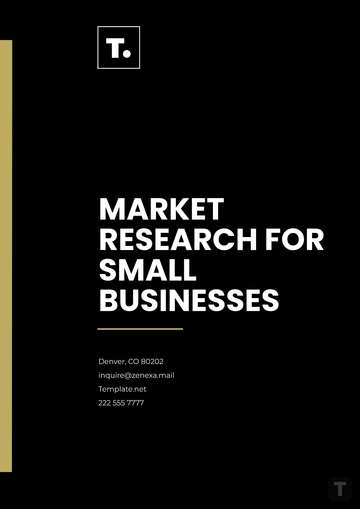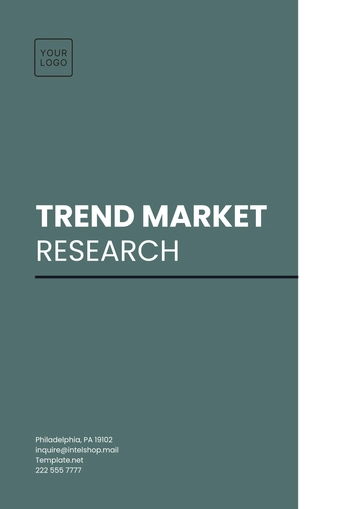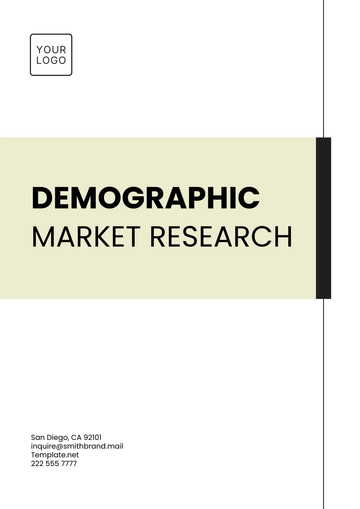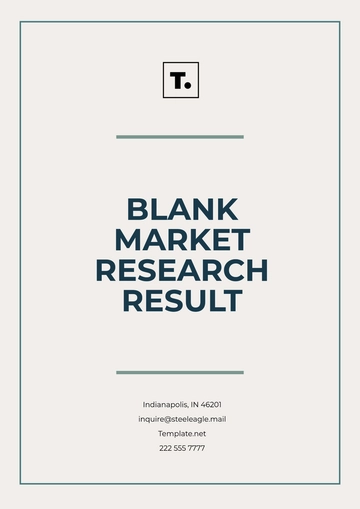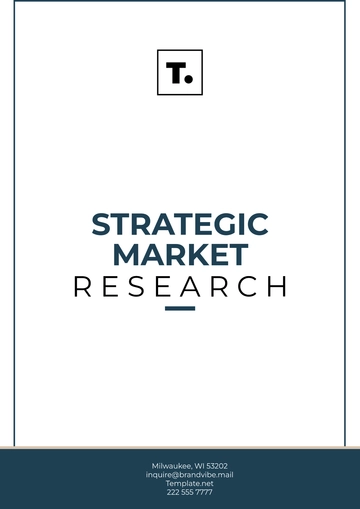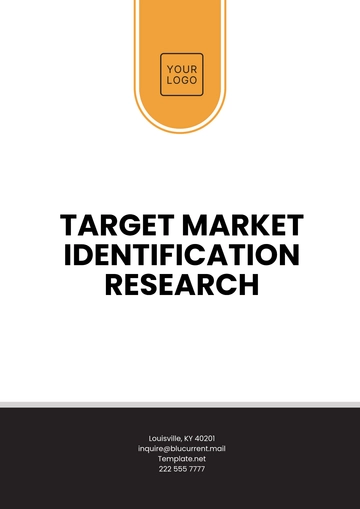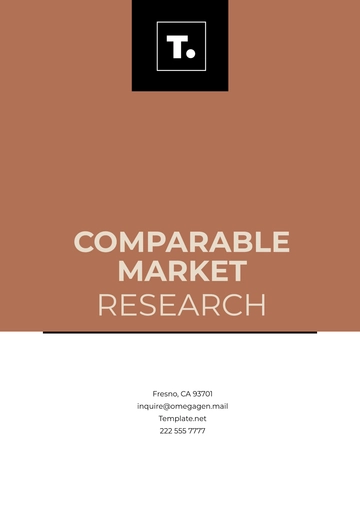Free Market Research Insights Format

Company: [Your Company Name]
Researcher: [Your Name]
I. Introduction to Sustainability Trends
Provide an overview of the topic by highlighting its relevance to current market dynamics. Use concise language to explain why sustainability is becoming a pivotal factor in consumer decision-making.
Example:
In recent years, there has been a notable shift in consumer behavior towards sustainability. As environmental concerns become increasingly pressing, consumers are making more eco-conscious choices in their purchasing decisions. This report delves into these emerging trends and provides actionable insights for businesses aiming to align with the growing demand for sustainable products and practices.
II. Methodology for Data Collection
Detail the methods used to gather data, ensuring each method aligns with industry standards
Example:
To provide a comprehensive analysis, the data for this report was collected through a combination of primary and secondary research methods, including:
Surveys and interviews with a representative sample of consumers.
Analysis of industry reports and market studies.
Review of company case studies and sustainability initiatives.
III. Analysis of Consumer Behavior Shifts
A. Key Findings
Structure this section to focus on consumer trends. Include subheadings for each finding:
Increased demand for eco-friendly products: Use data or quotes to support this point.
Price sensitivity and value perception: Explain how sustainability impacts price considerations.
Transparency and trust: Highlight the role of brand communication in consumer trust.
B. Sector-Specific Insights
Break down the trends by industry. Use bullet points to present specific examples:
Retail: Highlight innovations such as zero-waste initiatives.
Food and Beverage: Focus on the popularity of plant-based and organic options.
Fashion: Discuss the shift towards recycled materials and ethical practices.
Example:
A. Key Findings
Increased Demand for Eco-Friendly Products: Data shows a significant rise in consumer preference for products with sustainable credentials. Brands that emphasize eco-friendly packaging and ethical sourcing are experiencing higher customer loyalty.
Price Sensitivity and Value Perception: While consumers are willing to pay a premium for sustainable products, they are also increasingly seeking value for money. The perception of long-term savings and quality is influencing purchasing decisions.
Transparency and Trust: Consumers are placing greater importance on transparency from brands regarding their sustainability practices. Companies with clear and honest communication about their environmental impact are gaining consumer trust.
B. Sector-Specific Insights

Retail: Retailers incorporating sustainable practices, such as zero-waste stores and eco-friendly product lines, are seeing increased market share.
Food and Beverage: The demand for plant-based and organic food options is growing, driven by health and environmental concerns.
Fashion: Sustainable fashion is becoming mainstream, with consumers favoring brands that utilize recycled materials and ethical labor practices.
IV. Case Studies of Leading Companies
Summarize the company’s sustainability initiatives. Include specific strategies, outcomes, and lessons learned. Use metrics where possible, such as market share or consumer feedback.
Detail how EcoFresh Foods integrates sustainability into its operations. Discuss the impact on customer loyalty, sales, and brand reputation. Provide an analysis of the ROI from their sustainable initiatives.
Example:
A. Case Study 1: GreenEarth Apparel
GreenEarth Apparel has successfully integrated sustainability into its business model. By using recycled materials and implementing fair trade practices, they have captured a significant portion of the eco-conscious market.
B. Case Study 2: EcoFresh Foods
EcoFresh Foods has leveraged the growing demand for organic products by sourcing local, organic ingredients and reducing packaging waste. Their commitment to sustainability has resulted in strong brand loyalty and increased sales.
V. Strategic Recommendations for Businesses
Offer actionable advice categorized by theme:
Sustainable Practices: List examples of sourcing, production, and packaging improvements.
Transparency: Provide suggestions for clear and effective communication strategies.
Innovation: Discuss emerging technologies and creative approaches to sustainability.
Example:
Adopt Sustainable Practices: Companies should consider integrating sustainable practices into their operations, from sourcing and production to packaging and distribution.
Enhance Transparency: Clear communication about sustainability efforts and practices can build trust and differentiate brands in a competitive market.
Invest in Innovation: Embracing new technologies and innovations that support sustainability can provide a competitive edge and meet evolving consumer expectations.
VI. Future Outlook
Predict upcoming trends in sustainability and consumer behavior. Highlight opportunities for businesses to innovate and gain a competitive edge. Use optimistic but realistic language to convey growth potential.
Example:
As sustainability continues to gain prominence, businesses that proactively adapt to these changes are likely to benefit from increased consumer loyalty and market growth. The trend towards eco-conscious consumption is expected to strengthen, presenting opportunities for companies to innovate and lead in sustainability.
- 100% Customizable, free editor
- Access 1 Million+ Templates, photo’s & graphics
- Download or share as a template
- Click and replace photos, graphics, text, backgrounds
- Resize, crop, AI write & more
- Access advanced editor
Gain valuable business insights with the Market Research Insights Template from Template.net. This customizable, downloadable, and printable template offers a structured approach to compiling and analyzing market research data. Editable in our AI Editor Tool, it allows you to customize the template to highlight key findings and trends, ensuring you derive actionable insights for your business.



